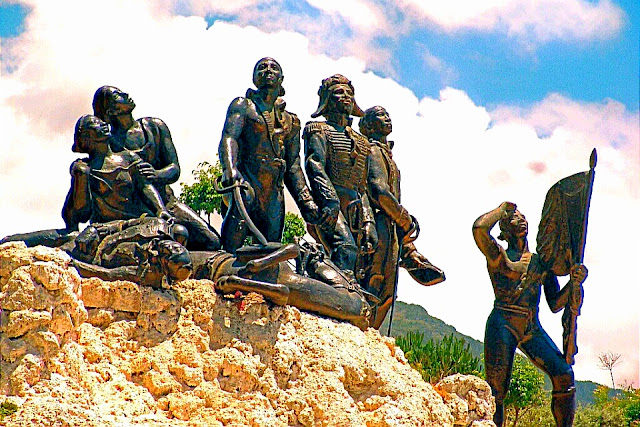Haiti Targeted for cheap labor by elites
As of October 2009, several multi-national companies have committed to investing in Haiti, particularly in the low-wage garment industry, according to an article by Jacqueline Charles of The Miami Herald published on Oct. 2, 2009.
“They include an Irish company that plans to open a call center in Port-au-Prince; Miami-based Royal Caribbean, which plans to train Haitians, and a $50 million industrial park to be partly funded by billionaire George Soros' Open Society Institute. The investment has the potential to create 25,000 new jobs in the garment industry,” Charles said.
Labor costs in Haiti are among the lowest in the manufacturing world, comparable to Vietnam, said Stewart Paperin, president of the Soros Development Fund, reported Naureen S. Malik of Dow Jones on Jan. 15, 2010.
Before the devastating earthquake Jan. 12, Soros and the Haitian conglomerate WINs group were in the initial planning phase of a joint project to build a free-trade zone on 60 acres of land in northern Port-au-Prince, originally scheduled for completion in late 2012. However, because of the upheaval caused by the current natural disaster, the project is being delayed, Malik said.
The WINS group is the largest conglomerate in the Caribbean and is owned by the Mevs family. The mega company is involved in warehousing and storage, port operations, and ethanol processing. WIN`s holdings include Shodecosa, the largest privately owned industrial and commercial park in Haiti; Varreux Terminal, the largest privately owned general cargo shipping terminal in Haiti; and Wineco, the largest liquid bulk storage facility in Haiti, according to the company’s Web site.
Following a visit by UN Special Envoy Bill ClintonBill Clinton last October, the Soros Economic Development Fund announced it was partnering with WINS and investing $45 million in a Haitian free-trade zone, reported Business Wire on Oct. 6, 2009.
Clinton—US president from 1992-2000—led a conference in Haiti in October 2009 to encourage international investment in the garment, agricultural, and energy sectors of the island nation. The event was held in Port-au-Prince and organized by the Inter-American Development Bank (IDB). “The conference was attended by hundreds of potential investors, including companies such as Gap, Levi Strauss, and American Eagle Outfitters," reported the Caribbean Daily News.
UN Secretary General Ban Ki-moonBan Ki-moon appointed Clinton as the UN’s Special Envoy for Haiti on May 19, 2009, reported the United Nations News Center.
During his visit in October, Clinton pledged support from the Inter-American Development Bank and signed an agreement with Haitian President Rene Preval to invite the Clinton HIV/AIDS Initiative to Haiti to support the treatment of AIDS, reported The Miami Herald.
Approximately 120,000 people in Haiti (about 2.2 percent of the adult population) is infected with AIDS, according to the Websites for UNAIDS and the CIA World Factbook.
Neoliberal Ideology
“The neoliberal reforms used by the global system are clearly meant to trick people into thinking that the West is using democratic principles to usher in an environment of freedom and equality,’ according to Noam ChomskyNoam Chomsky, as quoted by Jeremy Fox in the 2001 book Chomsky and Globalization.
“Euroamerican elites must inevitably grow richer, while the rest of the world could revert to the conditions of Blake’s dark Satanic Mills,” Chomsky said.
Wrote Charmers Johnson in the 2004 book The Sorrows of Empire: Militarism, Secrecy, and the End of the Republic, “American leaders now like to compare themselves to imperial Romans, even though they don’t know much Roman history.
"The main lessons for the United States ought to be how the Roman Republic evolved into an empire, in the process destroying its system of elections for its two consuls (its chief executives), rendering the Roman senate impotent, ending forever the occasional popular assemblies and legislative comitia that were at the heart of republican life, and ushering in permanent military dictatorship.”
From the perspectives of military control, natural resources, and cheap labor, Haiti is strategically located in an area of the Caribbean rich with oil, valuable minerals, and cheap labor.





Comments
Post a Comment